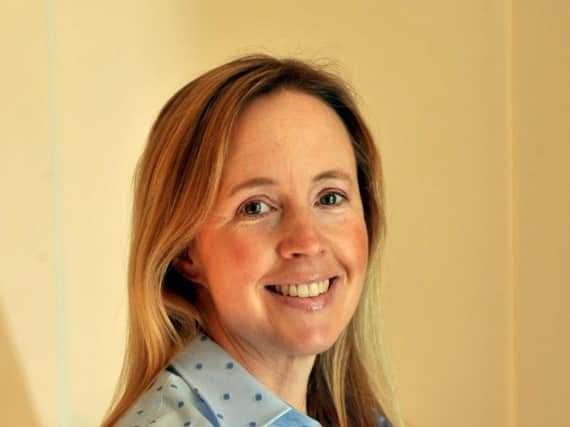Unexploded bombs and leaking mustard gas aren't things we have to worry about, but French farmers aren't so lucky - Jill Thorp


It’s a battle of wills, prising ourselves away from the log burner, but eventually with John-William eagerly pulling on waterproofs, we follow suit. I made time to watch some of the Remembrance service last week which prompted many questions from our son. He’d seen the war horse statue at Featherstone and had queried why some people were wearing purple poppies as well as red.
He struggled to understand why horses were used in a war of men, after all he said, it wasn’t their fault. The horrifying figures of loss, eight million horses, mules and donkeys were completely lost on him.
Advertisement
Hide AdAdvertisement
Hide AdHe couldn’t comprehend the numbers, but then neither could I. Almost half a million of those obliging sentient creatures that endured, suffered and ultimately succumbed to the horrors of the First World War came from Britain. He was shocked and angry to discover that farm animals were taken from their peaceful rural existence, never to return.
I didn’t have the heart to tell him of the hellish conditions that they faced, the starvation, exhaustion and agonising injuries as I could see he was already staring worriedly at his beloved pony, Bren.
When he was just a baby, we visited Ypres and went on a tour of the area, admiring the flat fertile farm land as we drove through the green and peaceful countryside. Towering crops of maize filled the surrounding fields and it was hard to imagine the desolate stretches of mud, wire, trenches and bodies that once filled the landscape.
For the farmers that live and work the land around Ypres and the once ruined village of Passchendaele, the war that ended 100 years ago continues to rage in the pastures of the Salient.
Advertisement
Hide AdAdvertisement
Hide AdThe iron harvest as it is known, has cost the lives of hundreds of men, unexploded munitions, shrapnel, barbed wire and bullets are brought to the surface every year with the turn of a plough. It certainly puts our own farming worries into perspective. I often refer to our place as resembling a scene from The Battle of the Somme, oozing, squelching mud everywhere, relentless cold and wet most of the year.
But we can escape it, modern clothing keeps us relatively warm and dry and we can sit next to a warm fire, enjoy a warm bath, good food. I worry endlessly about paying the rent. I often feel plagued by the constant deafening intrusion of the motorway.
What I don’t need to worry about, however, is unearthing an unexploded bomb, leaking mustard gas or wondering every time we enter a field, will we disturb the destructive remnants of a war long since passed. Watching the service and remembering our sobering trip to Flanders fields makes me realise how lucky we actually are.